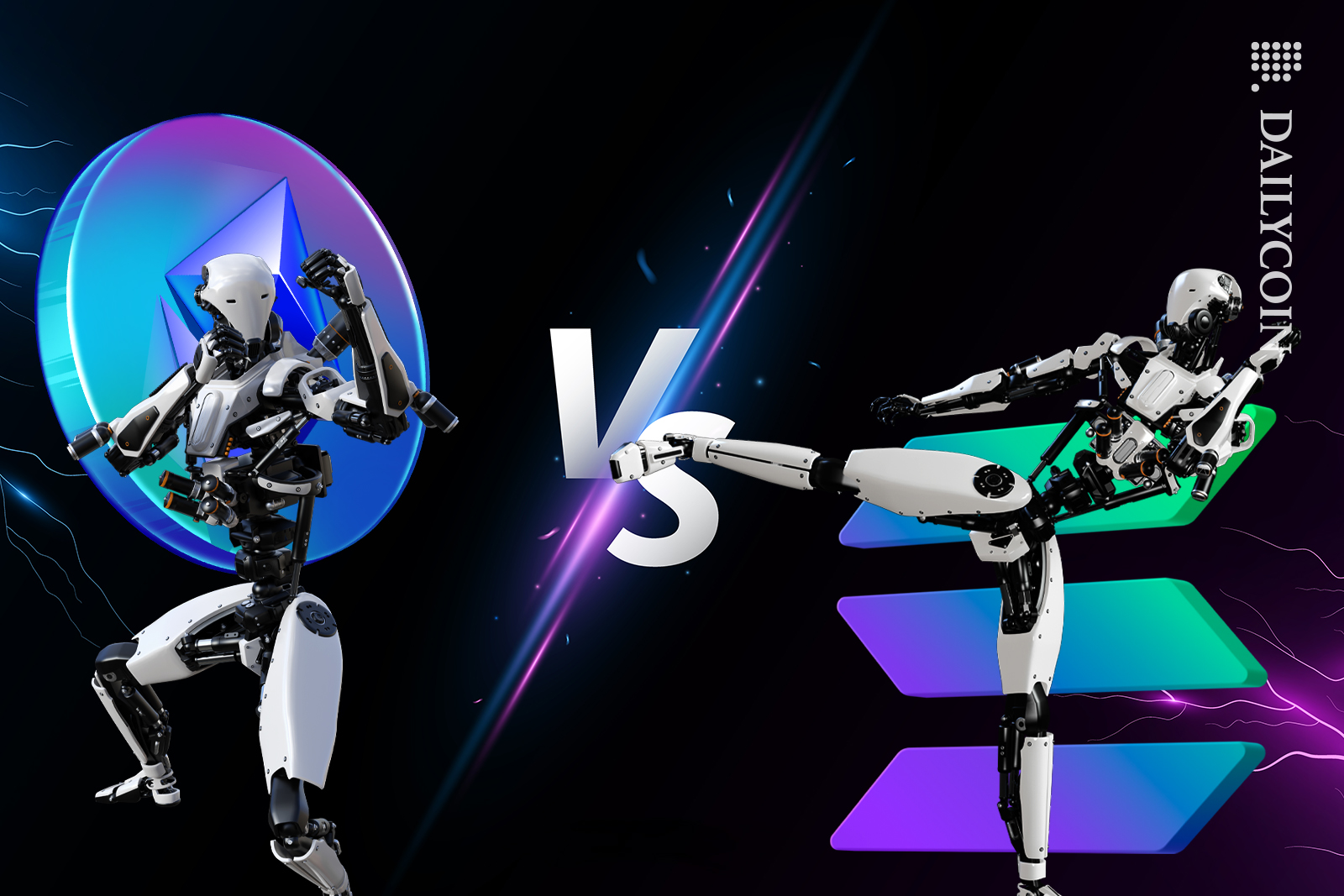
- Analyst shows Solana approaching Ethereum in total validator inome.
- High income on Solana makes becoming a validator more attractive.
- However, traders in DeFi run the risk of validators frontrunning their trades.
The blockchain ecosystem is witnessing fierce competition between Ethereum and Solana as they fight to attract validators. The more validators there are, the more secure a network is and the more demand for the token in proof-of-stake (PoS) systems.
Sponsored
Recent data from one analyst suggests that Solana could soon surpass Ethereum in the total value validators can derive from their activities.
Solana Set to Outpace Ethereum in Validator Income
On Tuesday, May 7, Dan Smith, a senior research analyst at Blockworks, shared data indicating that Solana’s total economic value was nearing that of Ethereum. In particular, Solana might soon surpass Ethereum in total transaction fees and Maximum Extractable Value (MEV).
On May 6, the combined figures for Ethereum stood at $3,165, while the same figure for Solana was not far off, at $2,803. Smith’s analysis suggested that Solana could “flip” Ethereum soon, perhaps within a week.
Critically, the flipping relies on the relatively high MEV Solana validators can extract, as Solana fees are still trailing Ethereum, standing at $1.49 million vs $2.75 million for Solana.
Initially known as Miner Extractable Value, MEV is the maximum potential profit validators can capture by reordering, including, or excluding transactions in a way that generates extra profit. MEV isn’t charged directly to the user, such as transaction fees; it’s extracted from opportunities like arbitrage, front-running, or liquidations.
Why Solana MEV Figures Are So High
Solana validators are relatively well-positioned to profit from sources other than fees. For one, Solana’s low fees and high speed boost transaction volume, leading to more opportunities for arbitrage. The more transactions there are, the higher the fees and MEV the validators can get.
Sponsored
At the same time, low fees and high speeds make it easier for validators to profit from MEV strategies. With transaction costs being less of a barrier, validators can engage in a high number of arbitrages, which would be un-economical on Ethereum.
However, this strategy has its shortcomings, in particular due to the ongoing network congestion. The high rate of transaction failures, hovering at 60%, means that validators are unsure whether their transactions will go through.
MEV strategies are a mixed bag for traders. For one, validators’ frontrunning hurts traders involved in DeFi, increasing effective transaction costs. At the same time, MEV opportunities make validating more attractive, boosting the demand for the token.
On the Flipside
- Despite its growth, Solana’s total value locked (TVL) was just $3.96 billion on Wednesday, May 8, compared to Ethereum’s $53 billion.
- Solana has suffered multiple outages due to overwhelming demand, causing disruptions that raise concerns about reliability.
Why This Matters
As MEV extraction grows on Solana, traders may face increased front-running risks and higher transaction costs. On the other hand, the heightened validator incentives could boost demand for SOL, potentially impacting the token’s price.
Read more about Solana’s prospects for dominance:
Here’s How Solana Can Outpace BNB and USDT: Franklin Templeton
Read more about how to get certified in blockchain:
Bitget Trains Over 6,000 Students: Here’s How to Get Certified
